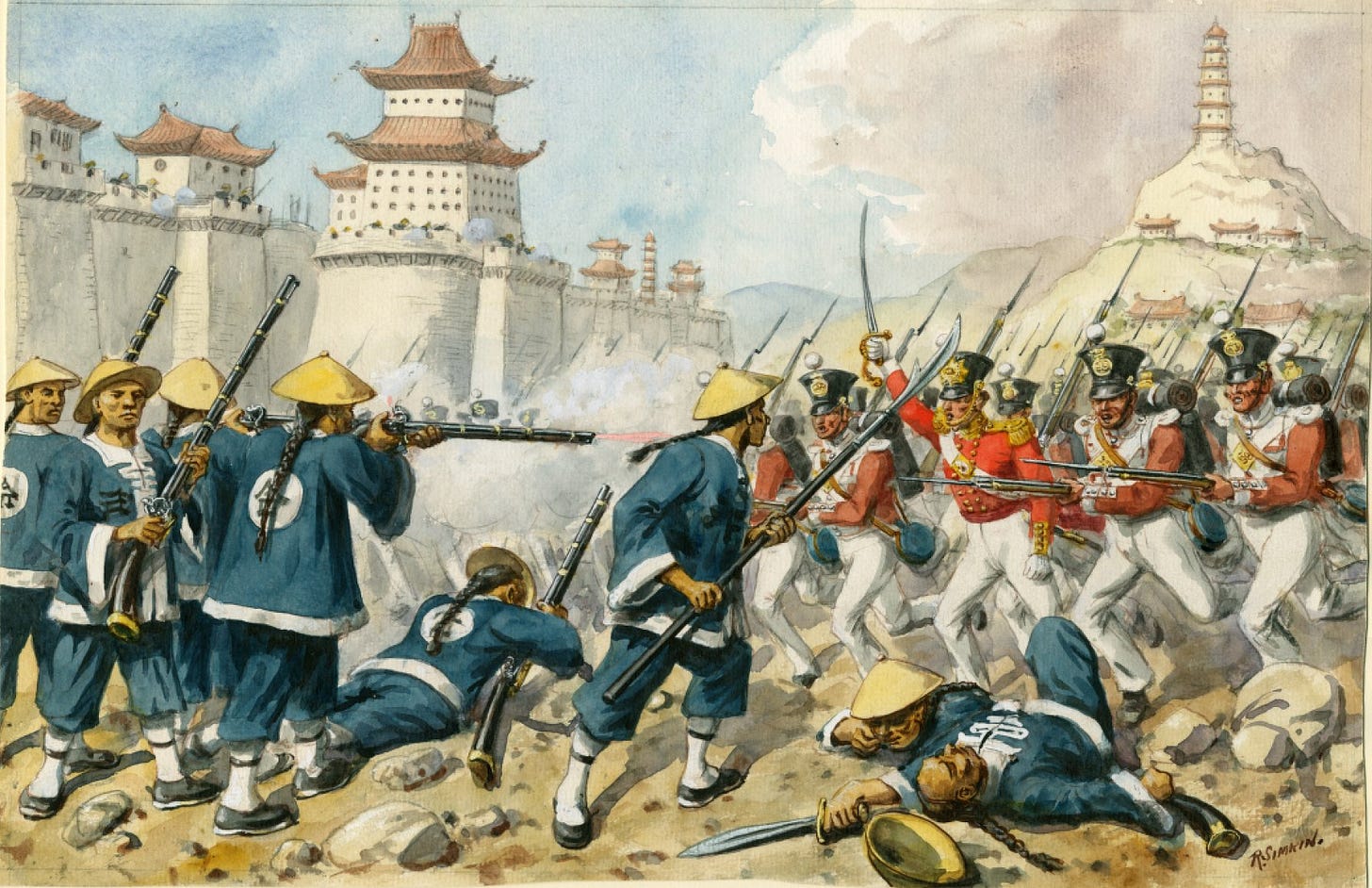Week 4: The First Opium War and the Treaty of Nanking
The history behind the concession of Hong Kong to the British Crown
Watercolor painting of British infantry attacking Chinese infantry at Chin-Kiang-Foo, 21 July 1842. (Source)
Where in the World?
Southern China, during the Qing dynasty.
When in the World?
First Opium War/First Anglo-Chinese War (1839-1842)
What in the World?
In the 18th century, Great Britain was the first western country to trade with China (Qing Dynasty). China sold porcelains, silk, and tea to the British, but the Western industrial goods were hard to sell in China's self-sufficient natural economy, therefore, the British offset the trade balance with silver.
European silver flowed into China through the Canton System, which confined incoming foreign trade to the southern port city of Canton in Southern China. The British East India Company began to grow opium in Bengal (today’s Bangladesh) and allowed private British merchants to sell opium to Chinese smugglers for illegal sale in China. The influx of narcotics reversed the Chinese trade surplus, drained the economy of silver, and increased the numbers of opium addicts inside the country, which worried Chinese officials.
Who in the World?
Concerned about the state of societal decline due to opium addiction, in 1841, a Chinese government official seized British opium cargo in Canton, which led to Britain declaring what became known as the First Opium War. The British navy won the war and imposed a one-sided treaty, the Treaty of Nanking.
Under the Treaty, the Qing government was obliged to pay the British government six million silver dollars for the confiscated opium.
In addition, the Qing government agreed to make Hong Kong Island a British crown colony, ceding it to Queen Victoria. The island provided British traders with a harbor where they could store and refit their ships.
Why in the world?
Later, the Second Opium War (1856-1860) added Kowloon Peninsula to Hong Kong Island as a concession to the British. We will elaborate on this next week.
This piece of history is important in understanding the current tensions between pro-democracy activists in Hong Kong and the measures taken by the Chinese government. This current political issue is tied to the history of western imperialism.
See you next week,
Stella




